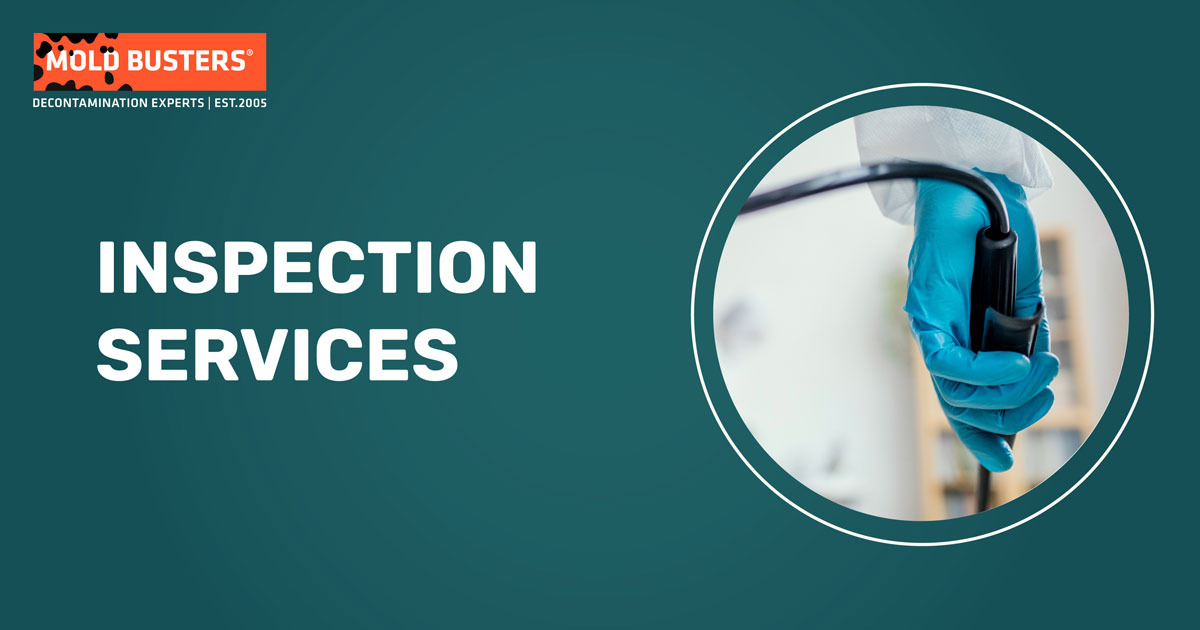Inspection Services in Ottawa & Montreal
Whatever your needs may be, Mold Busters has you covered with the widest selection of professional house inspection services in Ottawa.
Not in Ottawa? That’s okay, because we offer all of our inspection services in Montreal as well—all with the same speed, quality and professionalism.
Our mission is to provide you with fast and accurate information so that you can make informed and timely decisions about your home and your health. Making sure your indoor environment is a healthy one should be a top priority if you want to protect yourself and your loved ones.
We understand that each client has unique needs and concerns, which is why we offer plenty of options for inspection services in Ottawa and Montreal. Check them out below and give us a call for any questions or comments.
Need a Home Inspection? Get a Free Virtual Inspection!
Our free virtual mold inspection allows you to identify potential mold issues without needing a physical visit. Our certified experts will guide you through a comprehensive assessment via video call. Don’t wait! Ensure your home is safe and healthy by scheduling your free virtual mold inspection today.
Book Your Free Virtual Inspection NowHome Inspection Services
Inspection: what is the right choice for you?
Here is a comprehensive list of all the inspection services provided by a fully trained and certified Mold Busters professional:
Home Inspection Near You
We are working tirelessly during the COVID-19 pandemic to ensure that all our home inspection services across Ottawa and Montreal remain available. Here is an updated list of our service areas that will continue to serve for the time being:
Ottawa Home Inspection Service Near Me
- Brockville
- Belleville
- Carleton Place
- Cornwall
- Hawkesbury
- Kanata
- Kemptville
- Kingston
- Nepean
- Orleans
- Ottawa
- Perth
- Smiths Falls
Montreal Home Inspection Service Me
FAQ
A property inspection is more than about making sure all the toilets, faucets, and lights work. The inspection is a detailed review of the building to assess for problems in the structure, various systems, and mechanical components.
Although a house may appear fine to a buyer (and the seller may well guarantee the house is well maintained), an inspector can still uncover 10 to 20 items of possible concern. Everything, from the smallest quirk to the most serious, sweeping issue, is documented in an inspection report.
With an inspection report, would-be buyers learn in advance what the existing and potential problems are. This information can be useful when trying to negotiate for a lower price or have the repairs shouldered by the seller. A buyer will know how much work needs to be done and be able to decide on the sale based on what they know.
However, would-be buyers should know that a building inspection does not appraise the value of a home, nor does it check whether the building is up to code.
Most standard building inspections cover the major systems of a house such as the foundation, plumbing, wiring, drainage, and the roof.
Inspectors will need access to the exterior and interior of the building, the roof space and exterior, the underfloor space, and all throughout the building premises. A building inspection will also include the garage or carport, laundries, toilets, steps, water drainage, stormwater run-off, paths, and driveways.
Unfortunately, when it comes to issues like mold, there are some limitations to home inspections. Usually, inspectors will not go looking for mold. If it’s there and they happen to see it, then they will mention it in the report—but they cannot take the proper tests to confirm the presence of mold. For this reason, many buyers often opt to supplement their home inspection with professional mold testing.
Unless would-be buyers know a thing or two about thoroughly checking a building for soundness, they should always call for a building inspection when buying a property. A fixer-upper being sold “as is” understandably needs major repairs, but buyers will know better what these problems are if they get a detailed report. A newly constructed house is often presumed lacking in problems since it has never been lived in. However, brand new homes can and do have defects in workmanship that buyers can never have fixed after the sale.
Foregoing a property inspection is very much like entering a contract blind. Without the information in an inspection report, buyers would only notice major defects (that an inspection would have caught) after moving in. But by then, it may be too late to negotiate repairs with the seller or builder.
Passing up an inspection before purchasing a home is, effectively, taking responsibility for all problems that may be encountered later on. If you’re in the Ottawa-Montreal area and would like to check a property for heat loss, moisture intrusion, mold and other issues, contact a qualified inspector!
The home inspection process is the examination of a property to point out its deficiencies, including structural integrity, safety hazards, and potential environmental conditions. The cost varies on the size of the house, age of the house, and if it is a new construction. A home inspection is also more costly for houses with many fireplaces, stoves, furnaces, bathrooms, or if there are two stories. The home inspector will check for structural integrity and plumbing connections that may need to be repaired or replaced.

